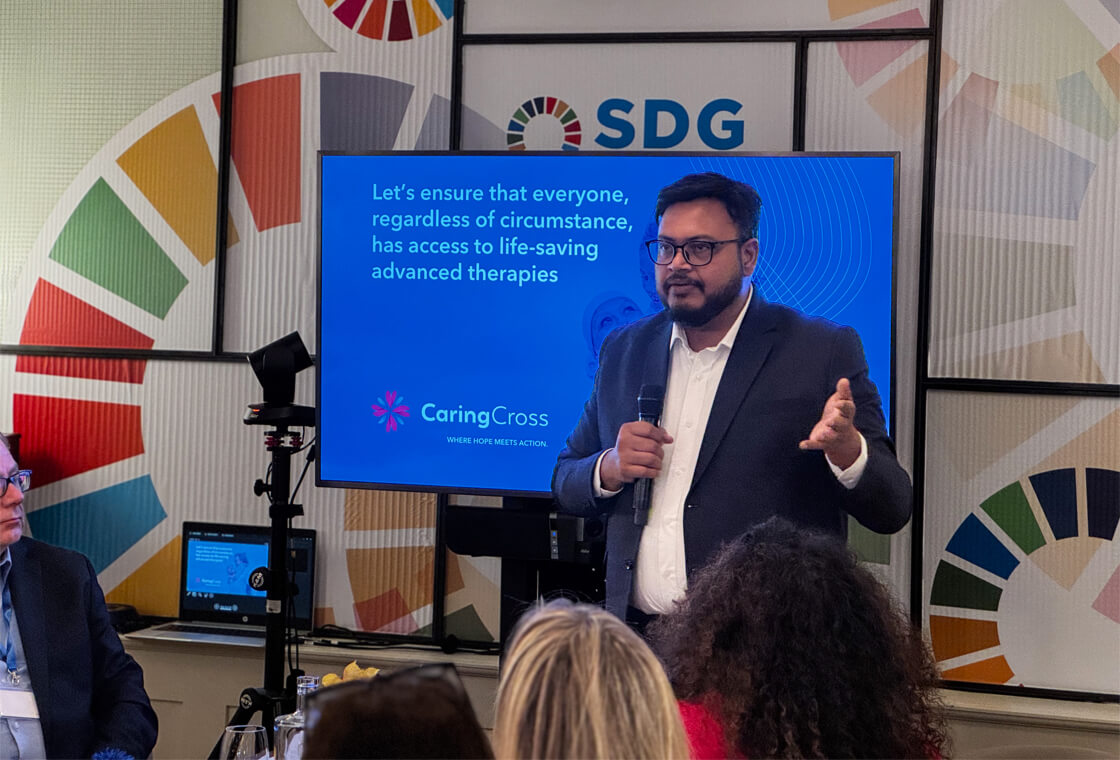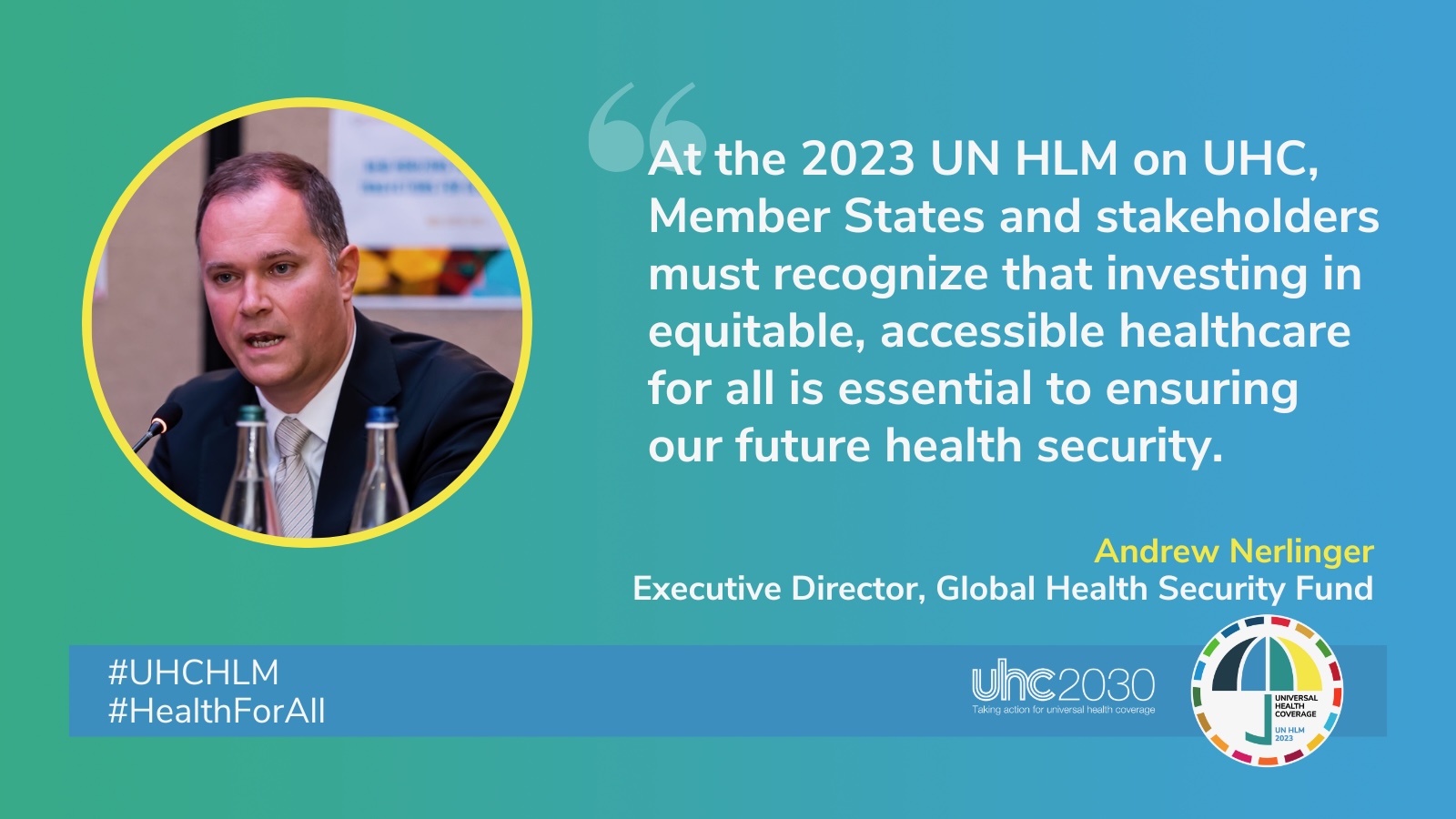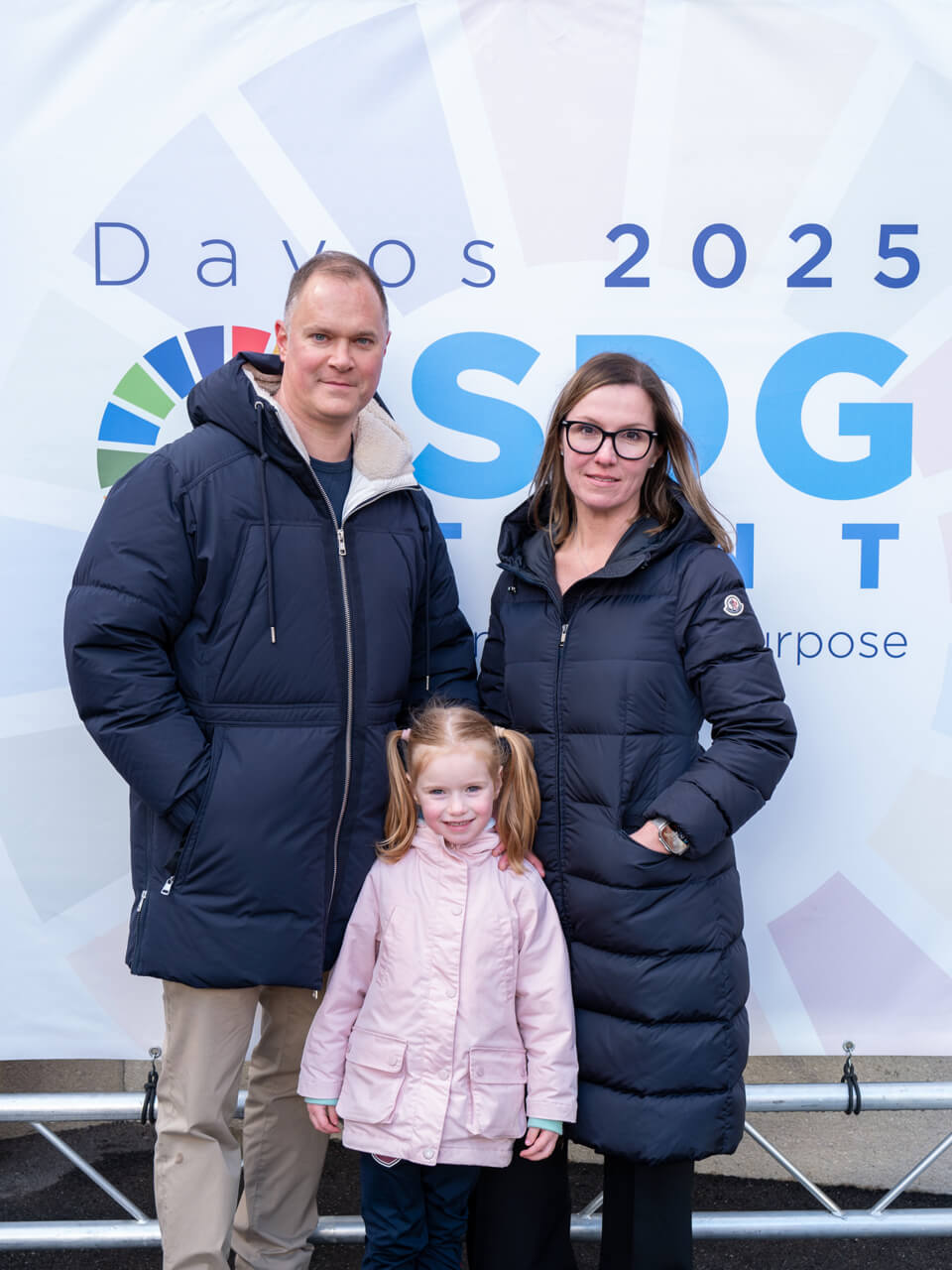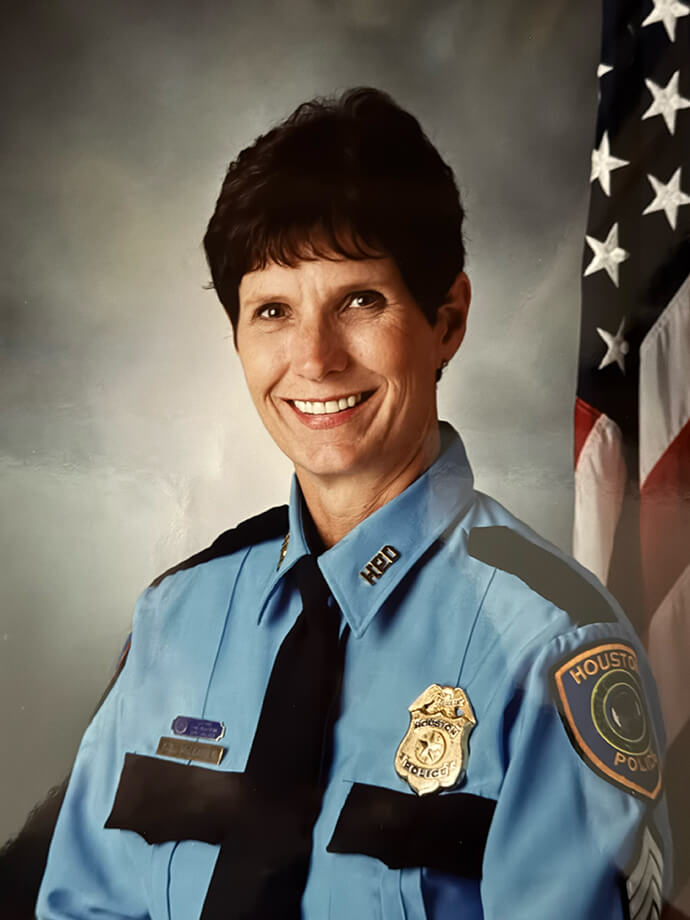GHS Fund Access Awards
The GHS Fund Access Awards recognize leadership and innovation in improving access to healthcare with a focus on impact in the Global South.

The program annually selects a focus discipline and brings together a community of practice to design and promote the award, select the award recipient, and collaborate with partner organizations to help support the honored awardee’s continued efforts to improve access to affordable, quality healthcare.

Achieving Universal Health Coverage
The GHS Fund created the Access Awards as part of its commitment to action in achieving Universal Health Coverage (UHC) as a critical component of improving global health security. According to the WHO, UHC means that all people have access to the full range of quality health services they need, when and where they need them, without financial hardship. The GHS Fund Access Awards align with the United Nations Sustainable Development Goals target 3.8 and the GHS Fund’s commitment to action as a partner of the UHC 2030 movement.
World Health Organization
Katherine McDonald Urological Ocology Access Award
The GHS Fund announced the “Katherine McDonald Urological Oncology Access Award” as the inaugural Access Award during the 2025 World Economic Forum in Davos. This award honors the cancer care journey of Katherine McDonald, a groundbreaking retired officer of the Houston Police Department and the mother of GHS Fund co-founder Lisa McDonald.
This award is inspired by the difficult experience that Kathy and her family faced while moving past a community diagnosis of terminal urological cancer to ultimately receiving successful treatment at The University of Texas M.D. Anderson Cancer Center, the world’s leading cancer hospital. The GHS Fund believes that access to quality cancer care should not depend on geography, financial resources, and personal connections. We are honored to launch this award in recognition of Kathy’s ten-year anniversary of being declared cancer-free with the hopes that it will enable others diagnosed with urological cancer to achieve the same outcome.

A Family Event: Lisa McDonald, Regina Nerlinger, and Andrew Nerlinger announce the Katherine McDonald Urological Oncology Access Award during the 2025 World Economic Forum in Davos, Switzerland.

About Katherine McDonald
I was born in Houston, Texas on New Year’s Eve in 1951. My family soon moved to Spring, Texas just outside of Houston where I grew up on a farm riding horses and raising livestock. I was raised in a loving family and have always been very close to my extended family. I did well in school and athletics, and after graduating second in my class, I attended Stephen F. Austin State University in Nacogdoches, Texas. I graduated with a degree in Physical Education, and thought I would become a teacher, but after graduation I returned to Houston and joined the Houston Police Department in 1974.
When I became a police officer, women were not yet patrolling the streets, in fact I was the first woman to work patrol in Houston. That experience led to a career with many such firsts. I met my future husband while we were training in martial arts as part of my duties on the Special Weapons and Tactics (SWAT) team. He later joined me on the SWAT team, and we spent our careers together in the police department. I married my husband Michael in 1978, and our daughter Lisa was born in 1980. Two years later our family was complete when my daughter Angie was born. We made a happy home for ourselves in Tomball, a small suburb of Northwest Houston where we lived next door to my mother, brother, and a host of other cousins and relatives. I had a long and rewarding career in the police department, and in 2006, I was named Houston’s Super Cop by the 100 Club. During my time at HPD I worked in many different departments in a variety of roles and retired at the rank of Sergeant in 2006.
After retiring, I remained active traveling, golfing, swimming and exploring new hobbies. When I turned 60, I challenged myself to get into the ‘best shape of my life’. I began a rigorous program of running and weightlifting alongside a nutrition plan. Despite my healthy habits, I noticed something didn’t feel quite right. I had a nagging discomfort in my back and legs that didn’t improve with rest. I abruptly began to experience frequent urination. After visits to primary care and sports medicine, I received a referral to a community urologist. A mass was found in my bladder and a biopsy confirm it was cancer. My daughter and son-in-law are both physicians and they quickly took on managing my care. The community urologist informed us that my cancer was a urothelial carcinoma, plasmacytoid variant and was stage 3. I was not a candidate for surgical intervention. I could receive chemotherapy in Tomball, but my condition was probably terminal.
Facing this diagnosis, my daughter was adamant that I receive a second and then a third opinion. Houston is home to the Texas Medical Center, so after a series of frantic calls from my family I had appointments for consultation at Baylor College of Medicine and MD Anderson Cancer Center. I was surrounded by world class physicians experienced in treating the most rare and aggressive urological cancers. After careful deliberation with my family, my care started at MD Anderson. From there, things moved quickly. I was admitted to the hospital and put on an intensive chemotherapy regimen consisting of 4 different drugs over a one-week period. I would go on to receive numerous rounds of chemotherapy. I lost my hair. I lost weight. I got unrelenting tinnitus and neutropenic fevers. It was grueling, but my tumor was responding. Things were moving in the right direction. My doctors advised that I was ready for surgery, a radical cystectomy to remove my bladder. I chose to have an ileal conduit diversion and now I have a urostomy that will remain for the rest of my life. The combination of chemotherapy and surgical intervention that I received at MD Anderson resulted in a surgical cure for my cancer. The margins of resection were clear, and I have been cancer free following my surgery for over ten years.
I am now in my 70s, still active and living a full life with my children and grandchildren. My cancer journey had a profound effect on me and my family, and I was equal parts privileged and lucky. My daughter and son-in-law are physicians and had insider knowledge about how to navigate the healthcare system. I had access to world renowned care and innovation in the treatment of bladder cancer at my literal doorstep. I was able to afford treatment, and my cancer responded to treatment. I am alive today for all these reasons, and it is important to me that others who are diagnosed with urological cancers have the same access.
Support the Access Awards Program
The GHS Fund welcomes interest from the urological oncology community in supporting the Access Awards program and its inaugural Katherine McDonald Urological Oncology Access Award. Please contact us with questions, interest in partnerships, joining the award jury or scientific committee, or amplifying information about the awards program. Follow us on social media for updates and announcements about the nomination process!